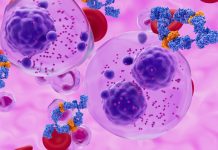Researchers looking to see if giving worms cannabinoids alters their existing food preferences find that worms can get the “munchies” too
Getting the “munchies” is a term cannabis users use to describe the increased craving for food following cannabis use. Not only does it make people want to eat more, but it also makes them crave the tastiest, most high-calorie foods.
A new study shows that well-studied nematode worms react to cannabinoids in the same way as humans do, meaning they get the munchies too.
The findings in worms are not only entertaining, the researchers say, but they also have significant practical implications, as the study explores the effects of cannabis on the endocannabinoid system and its ability to increase food consumption.
The findings in worms are not only entertaining, but they also have significant practical implications
The endocannabinoid system’s role in our body
Cannabinoids, a chemical in cannabis, is known to act by binding to cannabinoid detector proteins called cannabinoid receptors in the brain, nervous system, and other parts of the body, which is what gives the drug its effect.
Those receptors in the body generally respond to related molecules that are naturally present in the body, known as endocannabinoids.
The endocannabinoid system plays important roles in eating, anxiety, learning and memory, reproduction, metabolism, and more – which contributes to our increased feeling of hunger, known as the munchies.
With cannabis, after producing hyperphagia, cannabinoids can amplify existing preferences for calorically dense, palatable food sources, a phenomenon called hedonic amplification of feeding. These effects result from the action of plant-derived cannabinoids that mimic endogenous ligands (endocannabinoids).

Effects on nematodes parallel the effects of marijuana on human appetites
In the new study, the researchers first showed that worms (C. elegans) react to the endocannabinoid anandamide by eating more, just like how humans do. Essentially, getting the munchies.
Not only this, but researchers found, like humans, the worms tended to eat more of their favourite foods.
These effects of the endocannabinoids depended on the presence of the worms’ cannabinoid receptors, but at the molecular level, the cannabinoid system in nematodes looks a lot like that in humans and other animals.
Shawn Lockery from the University of Oregon in Eugene, said: “Cannabinoids make nematodes hungrier for their favored foods and less hungry for their non-favored foods. Thus, the effects of cannabinoids in nematodes parallels the effects of marijuana on human appetites.
“Nematodes diverged from the lineage leading to mammals more than 500 million years ago. It is truly remarkable that the effects of cannabinoids on appetite are preserved through this length of evolutionary time.”
Following this research, another study explored the results of genetically replacing the nematode’s cannabinoid receptor with the human cannabinoid receptor to see what would happen.
They found that the words responded normally to cannabinoids, exacerbating the commonality of cannabinoid effects in nematodes and humans.
There is an evident commonality of cannabinoid effects in nematodes and humans
Lockery continued: “We found that the sensitivity of one of the main food-detecting olfactory neurons in C. elegans is dramatically altered by cannabinoids. Upon cannabinoid exposure, it becomes more sensitive to favored food odors and less sensitive to non-favored food odors.
“This effect helps explain changes in the worm’s consumption of food, and it is reminiscent of how THC makes tasty food even tastier in humans.”
“Reminiscent of how THC makes tasty food even tastier in humans”
“Cannabinoid signaling is present in the majority of tissues in our body. It, therefore, could be involved in the cause and treatment of a wide range of diseases.
“The fact that the human cannabinoid receptor gene is functional in C. elegans food-choice experiments sets the stage for rapid and inexpensive screening for drugs that target a wide variety of proteins involved in cannabinoid signaling and metabolism, with profound implications for human health.
“Perhaps we can find a new set of similarities between humans and worms, now in the case of drugs that alter perception and psychological well-being.”











